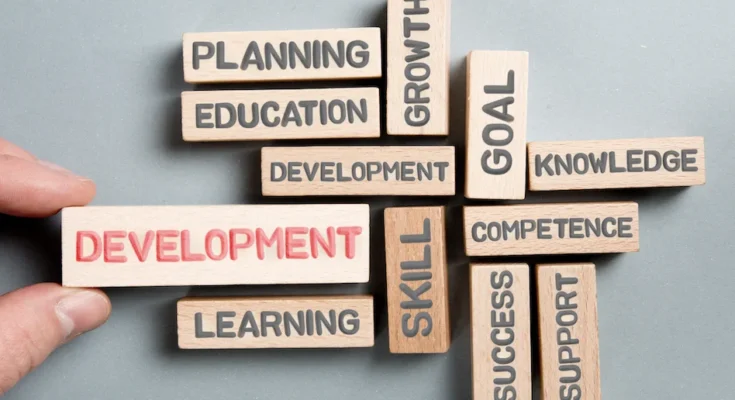In the times, one lives in, where one can hardly approach what he resources might help him, therein lies the most vital ability for adapting and learning: the luxury of gaining new skills. Be it for building further career progress, aiding personal life, or just staying up to date with the pace of an evolving job market, obtaining a new skill could be the best home for limitless opportunities. Get an approach and an attitude to survive the pace of life. Here are six current strategies for skill acquisition that work well.
1. Make Long-term Learning a Balance of Mindset
Lifelong learning is not just a buzzword – it is the way and mode of thought that fuels personal and professional growth. Historical examples like Leonardo da Vinci, who exemplified constant body of knowledge, stood as a reminder of this truth. From a great artist to a scientist, an engineer, and even an inventor, it was all about learning together and imparting knowledge throughout various lives of learning.
Research Insight: In a study done by Harvard University, it was found that lifelong learning since ancient times could help enhance cognitive function and delay cognitive aging. In fact, it is hardly ever focused merely on the intellectual scope, it also enhances one’s agility, reshapes perspectives, and sharpens the mind with growing age.

2. Set clear goals for skill development.
Before diving into any new skill, it is highly recommendable to set clear and actionable purposes. Be it an aim to learn a new language, become proficient in a technical skill like coding, or take up a creative skill like photography, setting a purpose would encourage retention. Setting clear, measurable goals can also show a track of progress and prompt a celebration of various small milestones along the way.
Pro Tip: Structure your aims towards skill-building using the SMART formulation (Specific, Measurable, Achievable, Relevant, Time-bound). This assures you that the chances to veer off towards the wrong direction are zero when you adhere to the SMART criteria in your goals-and this, in turn, gives you confidence and momentum.
3. Harness the power of practice.
The 10,000-Hour Rule, based on Malcolm Gladwell’s bestseller Outliers, argues that a total of 10,000 hours of dedicated practice is required to gain mastery over any work. While the optimum number varies according to the complexity of the skill, the principle is clear: improvement is only achievable through commitment by practicing-a lot, actually; it should be direct practice.
Example: The reason that Serena Williams is regarded as one of the greatest tennis players of all time is because, say what you may, she never misses practice! While techniques and skills evolve and change, her practice is dedicated to improvement as slow and steady surely wins the race.
4. Overcome the Fear of Failure
The fear of failure can be a deterrent to learning. Many would go feeling that they can’t do it since they think they might fail. But failure, in the case of learning, is not an end but the only part of learning. Thomas Edison once famously said, “I have not failed. I’ve just found 10,000 ways that won’t work,” while he labored to invent the electric bulb.
Motivation Inspiration: Instead of looking at failure as a negative notion, try to think of it as a learning opportunity. Every failure teaches you something new and inches you toward your final goal. An open mind toward failure and the ability to draw a lesson from your failures helps build resiliency and a growth mindset that pushes you further.
5. Make Use of Modern Tools and Resources
With the help of today’s technology and a plethora of such platforms such as Coursera, Udemy, and LinkedIn Learning, obtaining new skills ought no longer to be viewed as too tedious or complicated. In addition, YouTube provides unlimited tutorials on everything from cooking to advanced coding techniques. Learning new skills has never been easier since nearly anyone can do it online while commuting on the bus, on a break at work, or even at home at their own pace.
Quick Tip: Language learning apps such as Duolingo or computer programming apps like Codecademy are endowed with interactive and fun activities, allowing learners to learn at their own pace while incorporating the skill-learning opportunity into their daily schedules.
6. Practice and Patience
Consistency is the mother of success in every part of our daily lives and, thus, especially while learning skills. After all, Rome wasn’t built in a day, and neither will a new skill. Patience is of supreme importance, second only to practice. Setbacks are bound to arise and there may sometimes seem to be no development. But the crux is to go on however small the steps may be. In time your little effort would aggregate into gigantic success.
Be Patient: Skill discipline is a long distance race not a hundred meter sprint. Take time toward improvement and be kind to yourself throughout the process. Results will follow.
Key Takeaways
Skill development is not just to have more tools in your toolbox but also to develop and adapt versatility to tackle circumstances life throws at you. Setting clear goals, steadfastly practicing, overcoming the fear of failure, and taking advantage of modern tools and resources will help you on your journey to mastering new competencies. The learning process itself is time-consuming, but the process of lifelong learning pays innumerable dividends.



